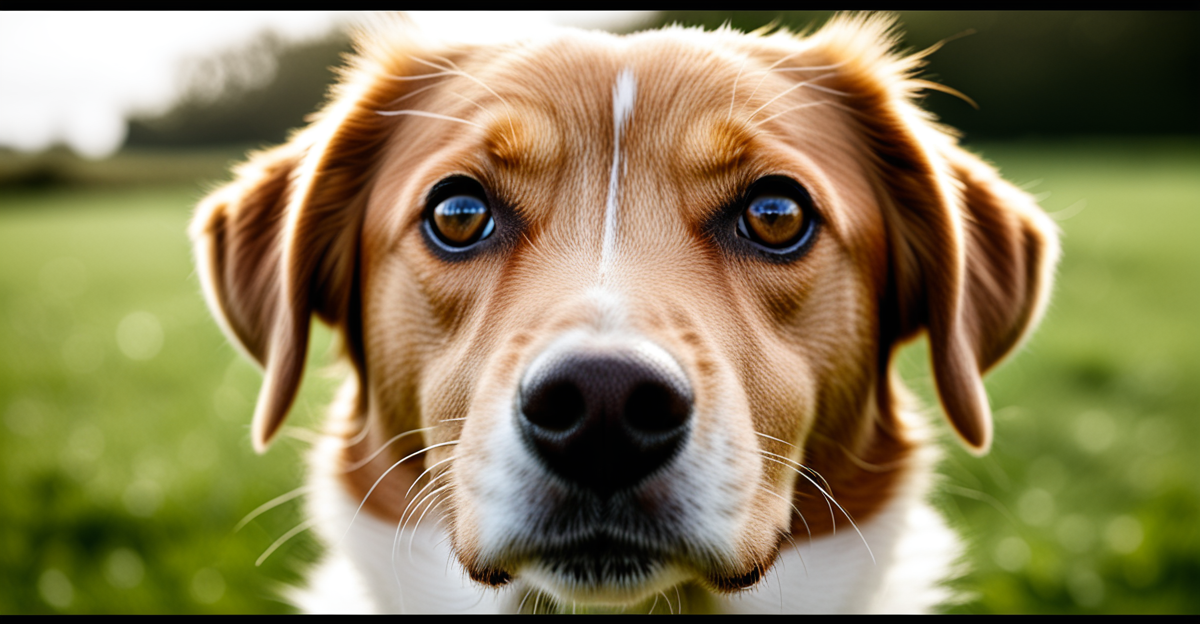Essential Nutrition Guidelines for UK Pets
Ensuring a balanced diet for pets is fundamental to their long-term health and vitality. In the UK, pet nutrition should consider the unique needs of both dogs and cats, whose dietary requirements differ significantly. A well-balanced diet provides the necessary nutrients, vitamins, and minerals to support growth, energy, and immune function.
Choosing between commercial and homemade food options depends on owner preference and a pet’s specific health needs. Healthy pet food in the UK landscape often includes high-quality proteins, moderate fats, and controlled carbohydrates. Many pet owners prefer commercial diets for convenience and nutritional completeness, while others opt for homemade meals – which must be carefully planned to avoid imbalances.
Also to see : How Can You Ensure Your Pet Thrives in a UK Household?
Feeding schedules and portion control must align with a pet’s life stage, activity level, and size. For example, puppies and kittens require more frequent meals with higher caloric intake, whereas senior pets benefit from controlled portions to prevent obesity. Establishing consistent feeding routines not only supports digestion but also helps maintain an ideal weight, reducing risks of diet-related illnesses.
Ultimately, mastering pet nutrition UK means balancing ingredients, monitoring intake, and adapting feeding strategies to each pet’s unique lifestyle and health profile. This approach ensures pets thrive with energy and wellness throughout their lives.
Additional reading : How Can You Ensure Your Pet’s Happiness in a UK City?
Prioritising Regular Exercise and Physical Activity
Keeping pets physically active is as vital as providing a balanced diet for pets. In the UK, exercise for pets should match their breed, age, and individual needs to maintain overall pet fitness effectively. For dogs, daily walks adapted to their energy levels foster cardiovascular health and mental stimulation. Most dogs benefit from at least 30 minutes to two hours of exercise a day, separated into play and walks.
Cats, particularly indoor ones, require creative approaches to exercise. Using toys, climbing structures, and interactive play sessions can simulate natural behaviours and encourage movement. Outdoor cats still need space to roam safely but may be at risk from UK outdoor hazards, so supervised outings or secure gardens are ideal.
Age impacts exercise needs significantly. Puppies and kittens possess high energy but need moderated, shorter bursts to avoid injury. Senior pets thrive with low-impact activities to maintain mobility and weight control. Incorporating regular routines enhances not only the physical health but also behavioural wellbeing, reducing issues caused by boredom or excess energy.
Incorporating healthy routines for cats and dogs in diverse UK environments, from urban flats to countryside homes, helps owners tailor fitness strategies effectively. Consistent exercise complements a healthy pet food diet, creating a holistic approach to pet wellbeing.
Routine Veterinary Care and Preventative Health Measures
Regular UK vet visits are essential to maintaining your pet’s health and catching potential issues early. Annual check-ups allow vets to assess overall wellbeing, monitor weight, and update important vaccinations that protect pets from common diseases. For many pets, these vaccinations include protection against distemper, parvovirus for dogs, and feline herpesvirus for cats.
Preventive care for pets also involves legal requirements such as microchipping, which is mandatory in the UK and helps reunite lost pets with their owners promptly. Additionally, pet passports are necessary for travel but must be maintained alongside routine vet care.
Recognising early signs of illness is crucial. Indicators like lethargy, changes in appetite, or unusual behaviour should prompt a vet visit to diagnose and treat issues promptly. Preventive health measures extend beyond illness to dental care, parasite control, and weight management.
By adhering to a consistent veterinary schedule, combining vaccinations, microchipping, and regular health monitoring, pet owners uphold the highest standards of care. This approach supports long-term health and addresses risks before they become serious, making preventive care a cornerstone of responsible pet nutrition UK and overall wellbeing.
Effective Parasite Prevention and Hygiene Practices
Maintaining optimal parasite control UK is vital for the health and comfort of pets. Fleas, ticks, and worms can cause serious health issues if left untreated, making flea and tick prevention and worming pets essential components of routine care. Regular use of veterinary-approved parasite prevention treatments—whether spot-on, oral, or collars—effectively reduces infestation risks.
Safe grooming routines play a key role in hygiene. Regular brushing and bathing tailored to the pet’s coat type not only remove dirt but also help detect parasites early. Cleaning pet bedding, toys, and feeding areas regularly minimizes the chance of reinfestation.
Worming schedules depend on factors like age, lifestyle, and local parasite prevalence. Puppies and kittens typically need more frequent worming, while adult pets benefit from annual or biannual treatments.
A proactive parasite prevention strategy safeguards pets from discomfort and disease transmission. Combining effective pest control, hygiene routines, and environmental cleanliness creates a comprehensive defence. Pet owners should consult UK vets for personalised advice, ensuring that parasite control fits their pet’s specific needs and lifestyle. This approach supports long-term wellbeing and peace of mind in maintaining healthy pet food benefits and overall health.
Essential Nutrition Guidelines for UK Pets
Providing a balanced diet for pets is crucial to their health, particularly given the diverse nutritional needs of dogs and cats. Dogs require diets rich in high-quality proteins and moderate fats to support energy and muscle maintenance, while cats need foods with specific nutrients like taurine, essential for heart and eye health. Choosing the right healthy pet food means paying attention to ingredient quality and formulation.
Owners can select between commercial pet foods, widely preferred for their convenience and nutritional balance, or homemade meals, which demand careful planning to meet all dietary requirements without causing deficiencies or excesses. For example, homemade diets may need supplementation with vitamins and minerals common in commercial options.
Feeding schedules and portion control are pivotal; puppies and kittens need more frequent feeding due to rapid growth, while adult and senior pets require adjusted portions to prevent obesity. Regularly assessing a pet’s weight and condition helps tailor feeding amounts effectively.
Ultimately, mastering pet nutrition UK requires balancing nutritious ingredients with appropriate portions and feeding routines to support lifelong health and vitality.
Essential Nutrition Guidelines for UK Pets
A balanced diet for pets is fundamental in UK pet nutrition. Dogs require high-quality proteins and moderate fats to fuel their energy and muscle maintenance. Cats need specific nutrients like taurine and arachidonic acid, which are vital for heart and eye health and are found mainly in animal sources. Without these, cats can suffer severe deficiencies.
Choosing the right healthy pet food depends on lifestyle and pet needs. Commercial diets often provide a complete nutrient profile, formulated to meet standards that cover essential vitamins and minerals. Homemade meals must be carefully planned; owners should consult veterinary nutritionists to prevent imbalances and consider necessary supplementation.
Feeding schedules vary by life stage. Puppies and kittens benefit from multiple small meals daily to support rapid growth, while adult dogs and cats generally thrive on two meals a day. Senior pets may require adjusted portions and fewer calories to avoid obesity while maintaining essential nutrient intake.
Careful pet nutrition UK practices involve consistent portion control, weighing pets regularly, and adapting diets over time. This tailored approach helps maintain ideal body condition, supports immune function, and promotes longevity, ensuring pets in the UK enjoy optimal health through nutrition.
Essential Nutrition Guidelines for UK Pets
A balanced diet for pets is essential to meet the distinct nutritional needs of dogs and cats in the UK. Dogs thrive on diets rich in high-quality proteins and moderate fats, supporting muscle development and sustained energy. Cats, being obligate carnivores, require specific nutrients such as taurine and arachidonic acid, which are predominantly found in animal tissues; deficiencies in these can lead to severe health issues.
When selecting healthy pet food, UK owners often choose between commercial options and homemade diets. Commercial foods are formulated to provide complete nutrition, including vitamins and minerals necessary for wellbeing. Homemade meals require careful planning and often supplementation to avoid nutritional gaps or excesses, making veterinary advice important.
Feeding schedules and portion control depend heavily on a pet’s life stage. For instance, puppies and kittens need more frequent, calorie-dense meals to support rapid growth, typically four times daily. Adult pets commonly do well with two balanced meals a day, while seniors require portion adjustments to prevent obesity and maintain nutrient intake. Monitoring weight and body condition regularly helps owners adjust portions appropriately.
Consistent attention to feeding routines and nutrient balance strengthens pet nutrition UK, ensuring long-term health and vitality.








